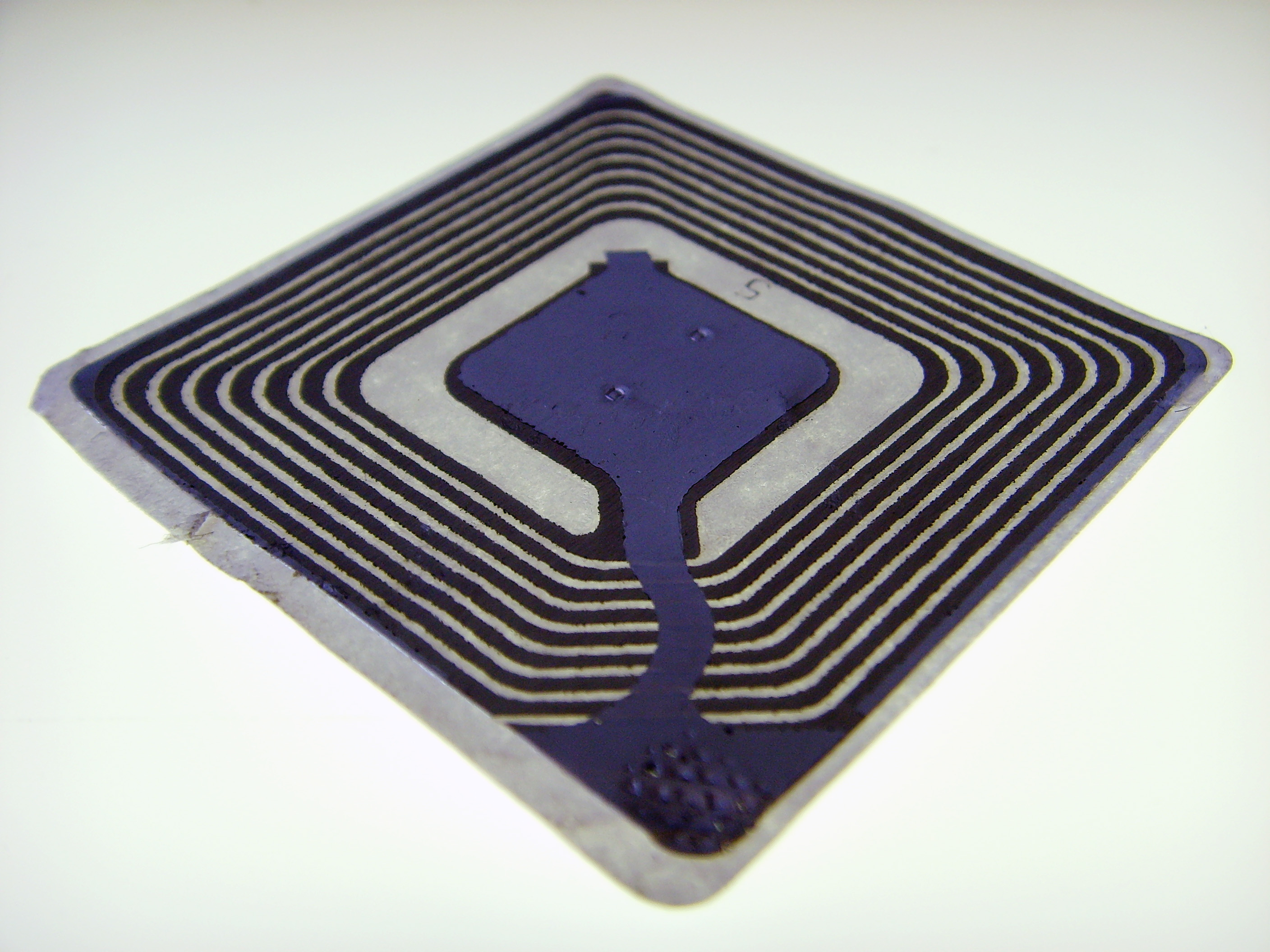

A way to print Radio Frequency Identification (RFID) chips right onto paper has been discovered by a team of scientists from University of Montpellier.
The technique uses a thermal evaporation process to deposit of thin aluminium coil antennas on sheets of paper which can later be used to create packaging or printed material. Researchers claim that this works out to be cheaper than any other method of producing RFID tags, allowing the technology to replace both barcodes and QR codes.
RFID tags are an essential component of modern shopping and logistics and are found in everything from DVD cases to casino chips and even passports. They are used to prevent shoplifting, track pets and, if you live in London, your Oyster card has one at its core.
So-called “passive” RFID tags, using NFC (near-field communications) do not need a power source. The reader sends a signal, which induces a current in the tag, that is used to power a radio transmitter, sending a signal back to the reader.
Even passive, NFC-based RFID tags are relatively expensive when compared to barcodes, because they contain some electronics instead of just a printed image, so their use is not as widespread. The ability to produce tags at a fraction of the present cost, using a printing technique could change that.
According to the article published in International Journal of Radio Frequency Identification Technology and Applications, the thermal evaporation process makes the RFID tag cheaper, as it requires less metal than conventional designs. The scientists involved said using aluminium might reduce the costs of tagging with an RFID chip by as much as 80 percent.
Aluminium is a lot less expensive than copper or silver, which are used in some types of RFID tag. This is good news for inventory users operating millions of RFID tags in their systems.
“Prototypes are functional and easily detected by the reader; the next step is to optimize the design for each family of RFID chips,” said Camille Ramade, spokeswoman for the research team. “This will significantly improve performance while maintaining the same low-cost technology on paper.”
RFID tags are not the only printable ultra-thin circuits. Last year, Norwegian technology company Thinfilm Film Electronics ASA developed a memory prototype embedded on a sheet of plastic.
American space agency prepares for testing of Boeing's Starliner, to ensure it has two space…
As UK and Europe develop closer military ties, European Commission says it will invest €1.3…
Zuckerberg seeks to revive Facebook's original spirit, as Meta launches Facebook Friends tab, so users…
Notable development for Meta, after appeal against 2021 WhatsApp privacy fine is backed by advisor…
First sign of shake-up under new CEO Lip-Bu Tan? Three Intel board members confirm they…
Trump's nominee for SEC Chairman, Paul Atkins, has pledged a “rational, coherent, and principled approach”…
View Comments
This article highlights some useful progress towards making a low cost tag. These tags have the potential to meet the longstanding holy grail of retailing to place an RFID tag on every article in a supermarket shelf and for your shopping trolley to be instantaneously scanned at check-out. However, this article only talks about reducing the cost of the antenna component whilst there are still considerable costs associated with the RFID chip itself and the placement of this chip onto the antenna. Achieving a price point of only a few pennies will require all these components to be simultaneously addressed. Tagging and sensing technologies are a core of focus for Sagentia; we have developed RFID tags to meet market needs across consumer and medical applications. The ability to get these tags to a more a commercial price point is one that we actively explore and support within the industry. We look forward to hearing more.
Last year, 2011, one University from Germany introduced a process for sheetfed offset printing to produce solarcells on paper with an ordinary offset press. With this you can also print RFID Tags, I suggest.
Best regards vina tam
See also: http://www.elektronikpraxis.vogel.de/stromversorgung/articles/330988/
and in English here
http://onlinelibrary.wiley.com/doi/10.1002/aenm.201100394/abstract